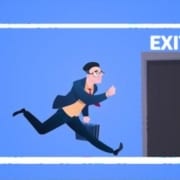Motivation Is An Inside Job
Why do we do what we do? What causes us to succeed, fail, procrastinate? Is it our environment? Our biology? Our New Year’s resolutions? There’s much debate why our motivation goals fail and how to resolve them. I believe we’re addressing the wrong issues.
Why Promoting Behavior Change Causes Resistance
Everything I’ve read on resolving ‘motivation’ issues focus on behaviors: why, how, when. Courses, keynote speakers, books, attempts to pump up, stimulate, and otherwise inspire. All trying to cause the ineffective behaviors to change to effective ones. But change doesn’t happen this way. Motivation involoves both shifting beliefs, and creating new habitual behaviours, that our unconscious status-quo will accept and adopt over time.
Here’s why: A behavior is the action – the representation – of a (largely unconscious) belief. Lasting behavior change occurs only when there is first a shift in the beliefs responsible for the behavior (Complex, due to the habitual and systemic nature of our belief?behavior connection).
So: a belief change will trigger a new behavior to match the new belief.
Trying to change a behavior, without changing the underlying beliefs first, causes pushback because our status quo is being disrupted and threatened. So new behaviors to respond to Commit! Achieve! will create resistance without the necessary buy-in from the foundational beliefs that caused the problem.
To effectively motivate ourselves and others, we must facilitate an unconscious shift from the ineffective beliefs to successful ones, and then introduce new commensurate behaviors. While there are certainly helpful training and coaching approaches to accomplish this, one way to get there is by listening to our Internal Dialogue.
A Case Study in Motivation
I’m going to use myself as a case study, as I have had a continual issue motivating myself to get to the gym. Basically, I trigger my healthy beliefs whenever I hear my Internal Dialogue rationalizing why I don’t need to go. Motivation is an inside job.
Here’s how I do it. I deeply believe I’m a healthy person, and that the gym is a necessary evil to maintain my identity. Whenever I hear my inner voice making excuses [“It’s so cold outside. You really would be better off staying inside where it’s warm.”] I have a trigger that pings me to shift me over to my higher-level beliefs Self, Health, Excellence – who I am. “No, you idiot. You’re a healthy person because you work out, so shut up and bundle up and get out the door.”
Indeed, by listening to my Internal Dialogue in many situations, I’ve trained myself to automatically counter non-motivating behavior with my higher-level beliefs that will then motivate me. (I have written a chapter on how to shift from behaviors to beliefs in my new book What? Did you really say what I think I heard? that’s offered free at www.didihearyou.com.)
Motivating Our Teams to Excellence
We can adapt this for our teams. Right now, we tell them ‘how’ and ‘why’ to succeed. We are hiring keynote speakers to ‘Motivate’ our sales forces and leaders, bringing in consultants to ‘Motivate’ more success. But all this is accomplishing is pushing new activities into the habitual status quo and merely getting some meager shifts that last a brief time. Then we blame the failure on our staff or the training.
Let’s motivate by teaching folks to listen to their own Internal Voices. Here are a few pointers (and again, my new free book has an entire chapter on how to accomplish this):
- Listen to your Internal Dialogue when you hear yourself making excuses. Behind every resistance is a belief that is holding the ineffective behavior in place.
- Notice the underlying beliefs that keep your current ineffective behavior in place and see if you have other beliefs that might be reweighted to take over for the ineffective ones (In my case, I move ‘health’ up on top of ‘comfort’ when it comes to the gym).
- Shift/reweight beliefs to put the effective ones on top.
- Add new behavioral choices that match the reweighted belief.
It’s more complicated than merely attempting to add some new behaviors, of course. But the change will be permanent. And you can use the skill any time change is required.
Begin the process of listening to yourself more closely and more often. If you want to learn more about bridging the gap between what’s said and what’s heard (www.didihearyou.com) I’m offering the digital book for free to make sure everyone has the capability to communicate, change, and motivate by truly listening. Or go to www.sharondrewmorgen.com to learn more about facilitating change in sales.
About the Author

and Dirty Little Secrets: Why buyers can’t buy and sellers can’t sell and what you can do about it
.
To contact Sharon Drew at [email protected] or go to www.didihearyou.com to choose your favorite digital site to download your free book.












Leave a Reply
Want to join the discussion?Feel free to contribute!